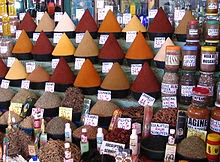 |
| December Days |
"The coming of the snow adds zest to my activities. Now there will be time for a multitude of things that during the feverish moving about of summer and fall were denied me, leisure after the long and constant busyness. To me that is the real meaning of the first snowfall – not a cessation of effort, but a drawing of the curtain on so many of the warm-weather activities that consume so much time. The snow means a return to a world of order, peace, and simplicity." – Sigurd Olson, from The Singing Wilderness
Olson has it partially right – he having lived up in the Quetico Wilderness, MN, surrounded by the grandeur of ice castle lakes and crystal cathedral pines (not to mention a naturalist by trade). But for this family, although our bodies
 |
| Mt. La Crosse Opening Day |
might find some fun in the speeding dash over icy fields, our minds are firmly set on the sea to come.
 |
| Sanibel, Fl. Lighthouse |
The Sanibel and Captiva Islands are considered the top shelling destinations in North America, and people from around the world, attracted to the naturally occurring jewel like treasures permanently on display along the beaches, make pilgrimages to walk the white dusty beaches to perform what is called the "Sanibel Stoop," or the "Captiva Crouch," depending upon which of the twin islands you happen to be shelling.
As one write-up boasts, "Sanibel Island and Captiva Island have earned their reputation as the Shell Islands honestly. The Islands are actually made out of shells, like some magnificent work of shell art created over thousands of years. When islanders dig gardens in their backyards, they find conchs, whelks, scallops, and clam shells often perfectly intact."
It's the distinct geography of the islands – shaped in a curve along the coastline among a string of other more orderly, straight-and-narrow islands – that creates what is called an "east-west torque...serving like a shovel scooping up all the seashells that the Gulf imports from the Caribbean and other southern seas." Shellers find themselves on daily scavenger hunts; seeking out new members for their collection for the sake of classification, beauty, or both.




































